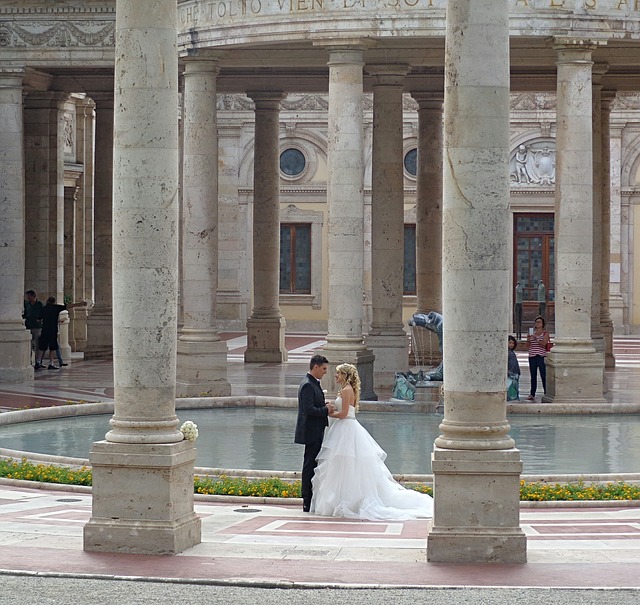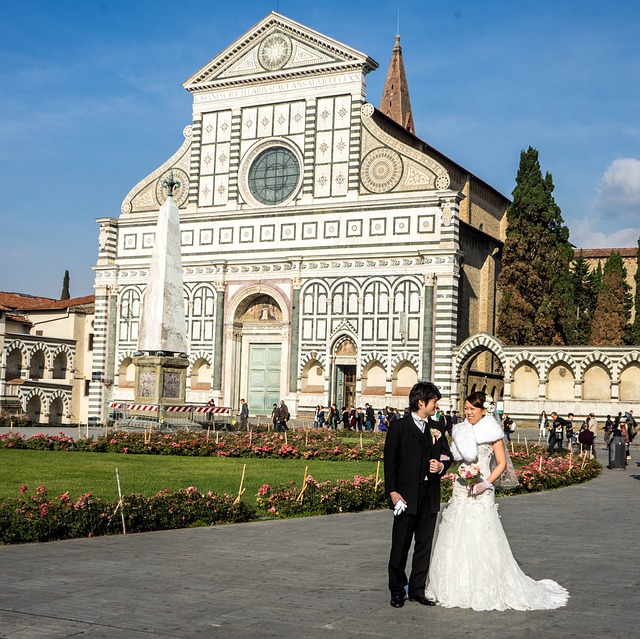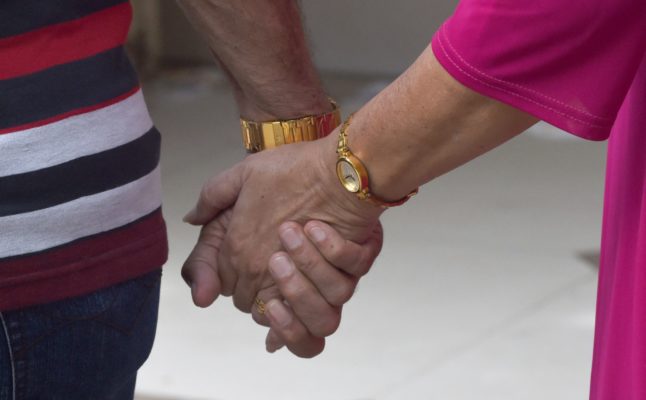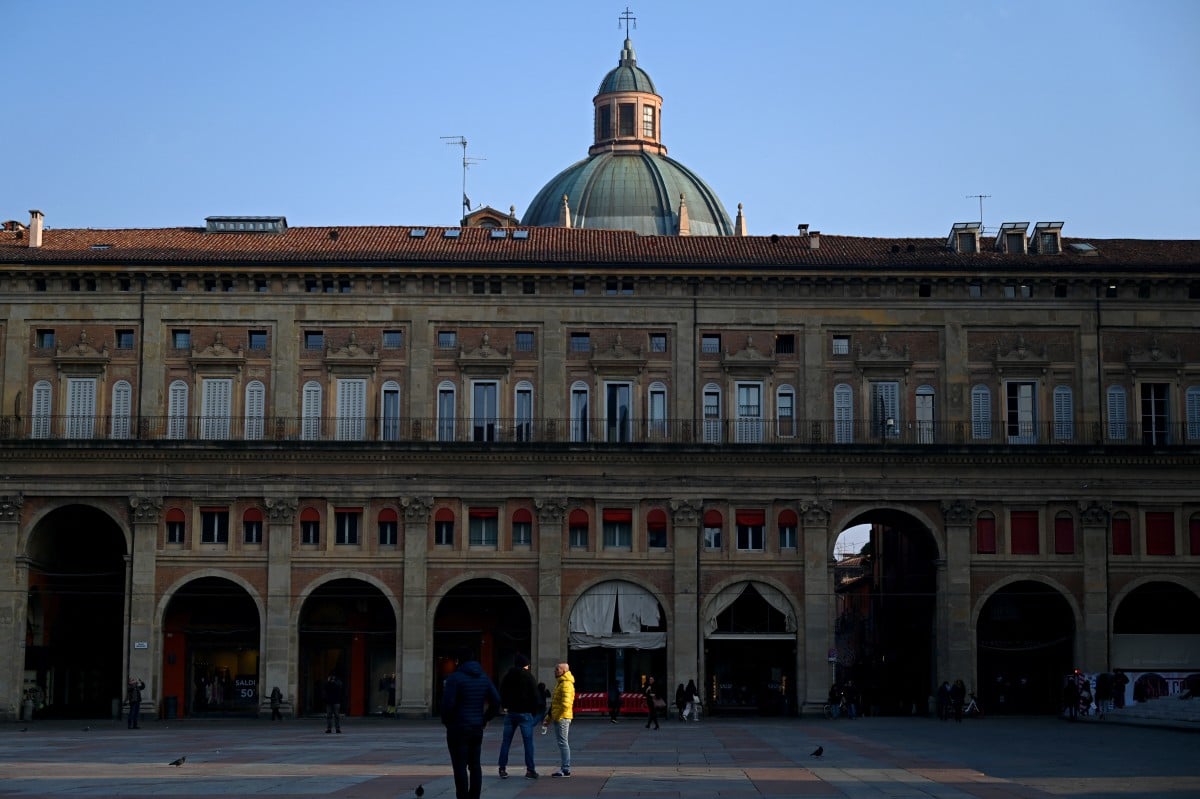The first time I started questioning our decision to get married in the south of Italy was when the manager of one potential wedding venue told me: “Twelve courses for the meal is standard. We can’t do any less. But we can do more, if you like.”
That was just the start of it. As I soon found out, planning a wedding in Italy as a non-Italian comes with plenty of surprises and challenges, from old-school traditions to a confusing bureaucratic process.
I’d never even been a guest at an Italian wedding, and I was months into the planning process before I fully understood what I’d got myself into.
Of course, if neither spouse is Italian and it’s a destination wedding, you’ll probably be able to avoid much of the trouble I had. But to help prepare you, here’s a look at what to consider when organising your own wedding in Italy.
Location, location
There are all kinds of stunning wedding venues up and down the country, from castles to vineyards or beachfront hotels.
Since every part of Italy is beautiful, you could no doubt find a fantastic venue or incredible church in any region you choose.
The most popular destination wedding spots in Italy include Tuscany and the Amalfi Coast, where countless venues have experience of catering for non-Italian couples. They’re the best choices if you don’t speak Italian and don’t want too much culture shock on your big day.
In my case, we got married in Puglia, the heel of the Italian ‘boot’, mainly because that’s where my now-husband is from and where his family lives. It also happens to be stunningly beautiful and, sadly, my home town in the north of England just couldn’t compete.
Puglia is another popular destination wedding location, known for its abundant food, good weather, and being home to a large number of characterful and relatively good-value wedding venues.
But be warned that almost every international couple getting married in the south works with a bilingual wedding planner, as things tend to be quite a bit less international here unless you’re on a very large budget.
Wedding venues
The simplest and cheapest option is to get married at the town hall, or comune.
And it’s a good option. A lot of Italian town halls are incredibly grand and beautiful buildings that resemble museums or palaces, even those in small towns.
The other options are the church or a civil ceremony at a licensed venue – where the town hall’s official, perhaps even the mayor, will come out to for a hefty fee (normally up to 500 Euros.)

Italy has some incredible wedding venues. File photo: Pixabay.
Church weddings
In Italy, both of you will usually need to be Catholic, and if you’re not Italian residents you may need a letter from your church back home. The rules can vary though so it’s always worth checking with the church itself.
Bureaucracy
No one wants to think about wedding paperwork when there are cakes to be tasted. It’s not a fun process, but with the right help and information it need not become a nightmare.
The paperwork needed depends on where you come from, where you live now, and various other factors.
If you both live outside Italy, you’ll need to go and give notice at your local town hall and then get a couple of documents officially translated. Your local town hall should have all the information you need.
If you live in Italy and one or both of you has Italian residency, you’ll need to make an appointment with your own country’s embassy in Rome to give notice and get a certificate of no impediment, called a nulla osta, which costs about 100 euros. Requirements vary for different nationalities.
You’ll then give notice at the comune of the town where you have residency – and for civil ceremonies, also at the town where you’re getting married, if it’s different.
We ended up having to give notice three times – once at the British embassy in Rome, once in the town we live in, and then again at the town we got married in.
For us, Italian bureaucracy fully lived up to its reputation. The amount of things that were miscommunicated between these three points was incredible.
Make sure you follow up on everything and make sure paperwork has been sent and received – and actually has all of the correct information, including your wedding date, written on it. (They forgot to write our wedding date on ours, and as a result we found out two weeks before the wedding that our officiant, the only one in town, was double-booked.)
In the UK you generally would book your civil ceremony official as soon as you book your venue, which could be up to two years before the big day.
But here in Italy, you can’t give notice until six months before the wedding – meaning you can’t book the officiant until then either.
I dread to think how much the paperwork cost for our wedding in total. I don’t actually want to know. But the embassy fees, numerous stamps, and registar fees added up to at least 700 euros – that’s without factoring in the cost of several trips to Rome, the time we had to take off work, or the parking ticket we got while waiting in one very long line…
Witnesses
Like elsewhere, you’ll need two witnesses. They can be friends, relatives, or pretty much anyone, but you will need to give their details and copies of their passports to the town hall a few weeks before the wedding.
As a side note: if you ask an Italian friend to be a witness, they might turn white and start stammering about previous commitments. Try not to be completely offended. It’s not because they don’t love you, but Italian tradition (at least in parts of the south) dictates that witnesses must give large sums of money – it’s a minimum of a thousand euros in Puglia – as a wedding gift!
I’m not a fan of this idea, so we sidestepped it by having family members be our witnesses.

A wedding in Florence, Italy. File photo.
Logistics
Wherever you choose to get married in Italy, the logistics can be tricky for non-Italians.
Don’t get married hundreds of miles away from an airport, and don’t underestimate the amount of time you’ll need to spend helping your guests book flights, hotels, car hire and answering random questions about anything imaginable, especially if they’ve never been to Italy before, or don’t travel abroad much. Ever wondered what it’s like to be a travel agent? Now you’ll get to find out.
And sadly, the fact is that if you’re getting married abroad a lot of people just aren’t going to be able to make it.
My family made it into a week-long holiday. Some friends scrimped and saved for months to pay for the trip. Others just chose not to come, for various reasons, and that stung more than I expected it to. Especially when my new in-laws were intent on inviting every last neighbour and long-lost third cousin, as southern Italian weddings tend to be very big celebrations.
As anyone who’s had a destinaton wedding will tell you, this is just something you’ll have to accept.
The language barrier
If you don’t speak Italian, you’ll need a wedding planner (or bilingual local friend) to help. There are lots of local English-speaking planners who’ll be able to translate not only the language but the cultural differences.
If you can’t afford to hire someone to plan the whole thing, some offer individual services like translations or help with paperwork.
Even if you speak Italian and live in Italy, a planner is always helpful. But if the budget doesn’t allow for it, you can get by without, as long as at least one of you speaks the language fluently, you have plenty of free time, and a lot of patience.
Finding suppliers
I was surprised and relieved to learn that a lot of reception venues in Italy include your cake, and sometimes flowers and various other ‘extras’, in the price of your meal. It’s also rare to find venues where you’ll need to decorate or set up anything yourself.
I’ve heard tales of wedding venues in the UK making couples pay extra to use things like tablecloths and even a knife to cut the wedding cake, so it was a relief to know that sort of thing doesn’t generally happen in Italy.
These added extras save a lot of trouble, but can also limit your choices – so be aware of that if you’re hoping to personalise everything down to the cutlery and napkins.
And if your tastes are anything but ultra-traditional you may struggle with finding some suppliers locally.
Wedding dress shopping was especially tricky. I found bridal boutiques here more expensive than those in the UK, most dresses are designed with church weddings in mind, and styles seemed to be either stuck in a 1980s timewarp or suitable only for the very statuesque.
While friends in the UK enjoyed glasses of prosecco while trying on their dresses, I faced a series of stern-faced Italian sales assistants in cold, silent boutiques – including one who berated me because, she said, my incorrectly-shaped body was making her dresses look bad.
Eventually, desperate and unable to face another boutique, I went to a local dressmaker in the small village my in-laws live in. It turns out that you can have a dress custom made for the same price as an the off-the-rack style – and the people who made it were lovely.
One thing I did source in the UK was our photographer. I met dozens of Italian wedding photographers, but all of them went for the same very formal, soft-focus style, and all of them were eye-wateringly expensive. Not only was it easier to find a more creative photographer in the UK, incredibly it even worked out cheaper, including their flights.
Timing
Italians have a well-earned reputation for being laid back, and nothing about that changes when you’re planning a wedding.
The most stressful thing for me was dealing with suppliers who took their time and never got back to me. Just make lots of notes and be prepared to chase them up instead of having them contact you about fittings or appointments. Because they won’t.
If you’re getting married in August or September, make sure you have everything organised before the August holidays start. Everything will be closed.
To avoid stress on the day itself, my advice is to leave a lot of time in your schedule for things to overrun. A lot.
The organisers at our venue told me they’d keep to a tight schedule, but I know what my Italian friends and family are like. So I put my own, more realistic timings on the programmes – much to the organisers’ irritation – and I was stubborn about it. These timings turned out to be accurate.
And if you’re a punctual bride, try not to be. No one’s expecting the ceremony to actually start at the time you’ve put on your invitation. Our guests were surprised, a bit put out, and mostly not yet seated, when I arrived a mere ten minutes late.
Understanding local customs
Weddings in Italy are usually traditional, often Catholic affairs, without the added extras common in other countries. For example, Italian couples will usually just have two witnesses, instead of a wedding party of best man, maid of honour, bridesmaids and groomsmen.
While there’s no reason foreign couples shouldn’t bring their own traditions with them, it’s still useful to understand how weddings tend to work in Italy. This way, you’ll avoid crossed wires with suppliers and venues.
If either of you is Italian, be prepared to compromise often when trying to navigate the wedding traditions of two different cultures. And if your partner is from southern Italy, expect the traditions and expectations to be taken up a notch or two. For example, in my husband’s province it’s usual for the mother of the groom to pay for the bride’s dress, and guests are expected to give cash gifts.
For us, cultural difference also meant me having to get used to the idea that his family would be very involved in the planning, and them getting used to the idea that we wouldn’t be following all of the usual traditions.
Initially they were unconvinced about our civil ceremony, my non-traditional dress, our rejection of the blowout 12-course banquet, our insistence on speeches (which aren’t usually done at Italian weddings) or my point-blank refusal to stand and pose for photos for an hour when there was a party going on. But in the end, none of this really mattered.
And this experience of learning to put my foot down and making it clear that I wasn’t going to follow expectations turned out to be excellent preparation for becoming part of an Italian family, where there are, let’s say, often certain ideas about a woman’s role that may not fit with your own.
Planning a wedding abroad can be a little trickier than at home. But you can have the day you want, wherever you decide to get married.




 Please whitelist us to continue reading.
Please whitelist us to continue reading.
Member comments